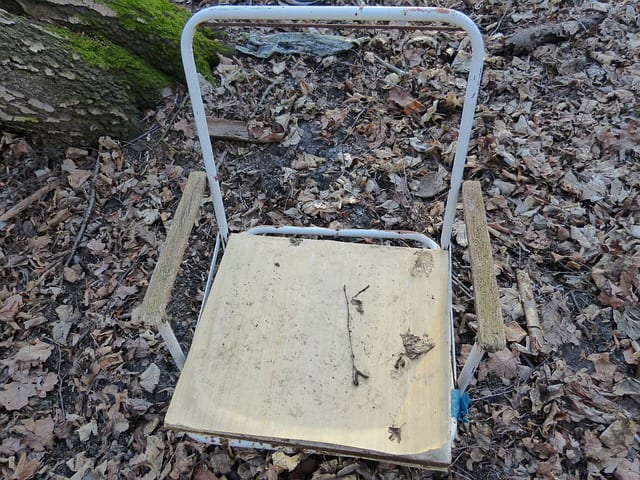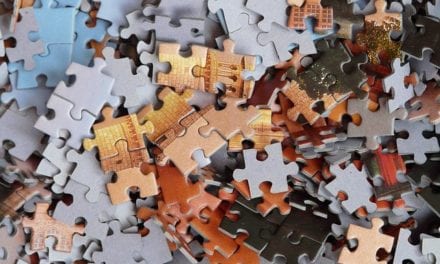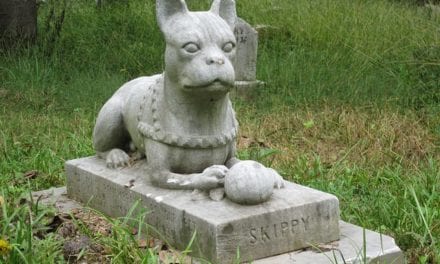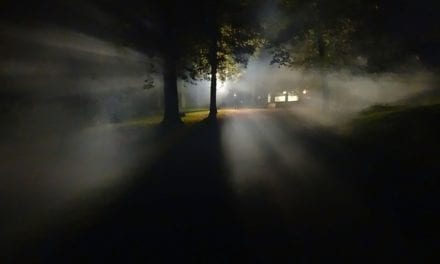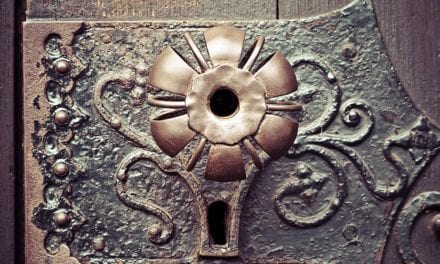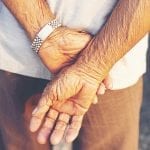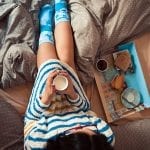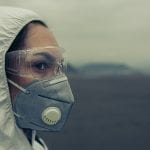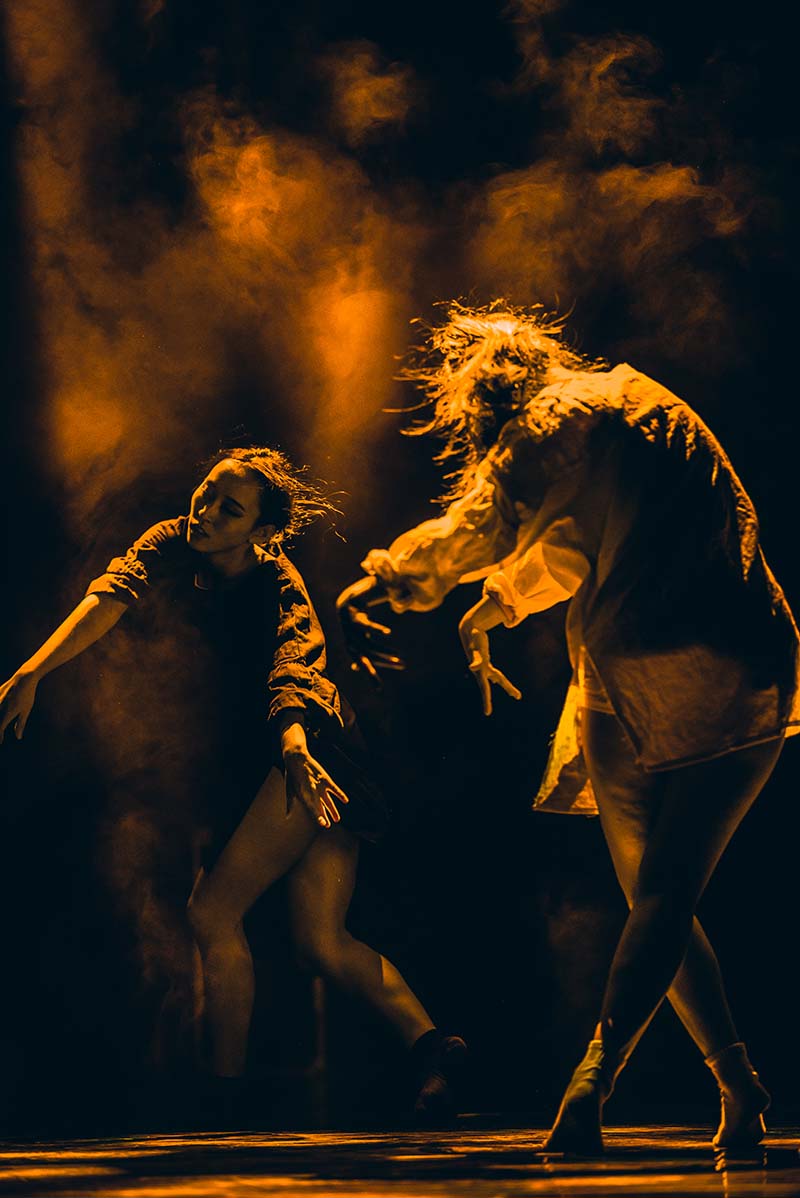The ghosts in this town aren’t much for conversation. If they stop, it’s not for long, not long enough to tell me if they’ve seen Momma. The need to find her guides my hand to the bedside table lamp every Tuesday since she died last month. Can’t say why exactly Tuesday is the day the ghosts come out, I just know that’s when they do.
Covers off. Clothes already on. I dressed before I cried myself to sleep last night to ease my morning routine, but I find it tough to swing my shoes to the floor. Maybe it’s the chill. My roommate these last four weeks, Dad, hates the heat, even in December. Or maybe it’s my grief and my guilt gluing me to the sheets.
Whatever the cause of my temporary mobility problem, the solution is edible. Grab hold of the box of fries on the floor and lower myself toward it. Hardwoods press against my ass. I suffer leftover dinner for breakfast. So against my doctor’s wishes, so what. You live until something you love kills you. The memorial pamphlet from the funeral home I keep in my pocket offers plenty enough proof.
The house stays quiet these days. Not that I threw parties on the regular before or anything, but Momma liked to drop by with a hug or a pie or a wonder about why I haven’t been answering her texts. “Because I’m working, Ma,” I’d tell her, when really I was exhausted from swiping through my phone in search of a date. The house turned to cotton the moment her knocks stopped echoing in the foyer. That creaky floorboard right inside the bathroom door? Silence, no matter how many times I pace across it while grinding down my stubble. The hum of the hundred-gallon fish tank: gone. Like I do so often, I check on my fish, hope they aren’t showing their bellies to the water’s surface. Morning, guys.
And what about Dad, famous for his log-splitting snores, under the blanket on my pullout sofa? The man who can’t sleep anywhere his wife of thirty-one years slept because he’s too afraid her spirit’ll kiss him hello. More afraid it’ll kiss him goodbye. This man, I almost miss him on my way out.
I’m on the porch; the sidewalk waits. Streetlamps push away the fading night. My breath hangs in front of me like some kind of stereotypical ghost.
The actual ghosts blow by in a blur of blue, a dovetail of the same color following them wherever they go. I smile. Can’t help it. I’m far from calling myself an artist, but I’d love to paint the beach with that shade, to mix the best place in the world with the last part of this world. The ghosts head left, opposite direction of their front door.
“Hello?” I clear my throat. “Hello, excuse me. Have you seen Michelle Blake? She used to live up the block.”
A cop in her patrol car taking in the sight slows. The spectral figures do not. I knew they wouldn’t because they never do. Sure, I get it, the few hours they have to visit this mortal coil they aren’t wasting on a stranger. Still. Hardly lessens the sting from the stream of cold shoulders rolling past me.
I touch boots to the sidewalk and head east. Yeah, I have a car, and yes my jacket’s too thin for this time of year, but I walk. I always walk when I’m looking for Momma. All of these faces passing by, all of them wearing a blue too brilliant to stare at for too long, going at a speed faster than my shuffle, makes recognizing the face that so resembles her son’s impossible.
Two miles. That’s the distance from my home to theirs. With one and a half miles left, I stop at a service station for a large bottle of water and an even larger black coffee. With one half of a mile left, I stop at another without buying anything. She used to buy egg rolls at this second place, but she’s not here. She’s never here. I tell myself to quit worrying about it; this is why I camp at her front door. What comes into this world must also leave.
One block to go, and the day’s first flames set Birmingham aglow. Buildings long ago swallowed by neglect enjoy a fresh coat of warmth. Abandoned lots filled with trash and shadow fill with less shadow.
And now I see it: the Coke bottle. Dirty green glass, faded white lettering, chipped lip. The inside is dark. I can tell it from other litter because of the picture frames squared around it. The candles burned to nubs surrounding the square. The plastic flowers planted around the candles.
As sweaty as I am from the trek, my palms are dry. As I approach the bottle, they are no longer dry. My breathing slows, hitches a few times. The blood in my ears screams, can barely hear the ambulance wailing from some distance away, could be beside me for all I know. Thank God for small miracles. My muscles are wound so tight one loud noise might make me pop.
The Coke bottle lights blue. Bright, brighter, brighter some more.
I shut down. Every part of me: from heart to lungs to feet. But the puff of breeze blowing between the buildings gives me reason to sway. I am Jonathan Blake, a cardboard statue.
Fingers climb out of the bottle. Wrists come next, then arms sleeved in the kind of coat an old woman wears to her grave. My shoulders slump, and I can move on my own again. My eyes are on the ground when the woman who is not Momma finishes her exit. Dad gave Momma her favorite dress when he returned her to the Earth. It was a red number that brought little recognition to me but brought him to his knees when he brought it out of their closet.
The woman — the ghost — pats my hand. “Everything will be okay.” She sounds like she’s underwater, same as the others who bother to talk to me.
“Have you seen Michelle Blake?”
She grins. And she leaves, rushing away in a blur.
Time to settle in. There’s a mess of garbage bags tied together with bungee cords. Taped to the bags is a note:
BE KIND, REWRAP
“No problem, note, I always do.” Careful, careful, careful, I unwrap the camping chair some sad soul left out here for the next sad soul waiting on their loved one. The chair is of the collapsible variety, now uncollapsed, now with my ass in it. The arms are threadbare and pink, worn from countless folks in dark places sitting in the sun. People like me. And suddenly I feel sorry for these people I’ve never met, so sorry that I’m tempted to jump to my feet and run. Run so far and so fast that I might never stop. Never stop so I never have to feel this way again.
But I don’t. I need to see Momma.
Soon after, a ghost comes.
It isn’t her.
Another comes, and it isn’t her.
And another.
And then another.
None of them are Momma, and all of them pretend not to hear me when I say, “Have you seen Michelle Blake?” So I continue to sit. I continue to ask.
~~~OOO~~~
My water bottle eventually empties, the sun reaches as high as it’s going to reach and starts going the other way, the noises of the city are in full swing. That means the ghosts are going home. They do, in great number. I’m on my feet, searching, asking, pleading, but I get nothing. Nothing but the visual of these many ghosts flooding into the Coke bottle, a great blue river of death. I always wondered if that’s why they sound the way they sound, like drowning victims.
Then I’m alone.
As I lower my head and lift my feet, turning to the camping chair to ready it for the next weary person, I can’t — a man’s sitting in it. Dressed in blue, from bowler hat to cheeks to slacks to wingtips. His body twinkles in the early afternoon light. Same story for his eyes, a kindness shining in them so strong I squint. I open my mouth for the usual question, but nothing spills out.
“The name’s Salt.” He stands and offers his hand.
I hesitate.
“It’s all right,” he says, showing his empty palm, “it won’t hurt. That stuff about how cold we are is completely over-exaggerated.”
I believe him. That old woman who touched my shoulder, I didn’t notice her temperature one way or the other. So I take his hand. Chilly, but no more so than the rest of the world, what with only twelve shopping days left before Christmas.
He says, “See? Over-exaggerated.”
I let go. “Have you seen Michelle Blake?” The words come out small, less urgent than they ever have. As if saying them this often has sapped their power. The thought depresses me.
“Yep, bunch of times. She’s my checkers buddy.”
“You . . . you know her? Where is she?” I look around, but it’s just the town I grew up in, abandoned like always.
“Home, but the home whose pearly white doors won’t open until you’re older. If you’re lucky like me, anyway.” He laughs. “That’s what I’m here about, John, to talk to you about her. She wanted me to come down and tell you she’s not mad about what you did. Accidents happen, even the tragic kind.”
She wanted me to come down and tell you . . .
I blink. Slowly, so slowly, like my eyes might not open again.
“So you’re saying she’ll be here soon?” I ask.
“I’m saying she’s sorry she won’t tell you this in person. She’s hanging out, relaxing. She’s spending time with family and old friends, making new ones.” He thumbs at himself.
“Oh, okay, so she’ll be here next week. That’s great.” I’m shaking.
“You’re not hearing me, John.”
“I’ve been waiting so long for her, to apologize to her. Tell her I had no idea she had a gun in her purse. Tell her I shouldn’t have gone in for keys to move her car. Tell her I didn’t know the safety was off. I mean, Dad said I shouldn’t feel this way because it was her anniversary gift from him, but how can I not?” Shaking harder, shaking tears free.
“She knows, she knows. She’s just not here because she’s at peace. I said I’m lucky, but I’m not as lucky as she is.” His grin darkens.
“If you don’t mind, what’d you say your name was? Salt?”
“Yeah.” He squeezes my arm, hangs on when my knees buckle.
“Thank you for the heads-up, Salt. Truly. I can’t wait to see her.”
He leads me to the camping chair and helps me into the seat.
“Go see your dad, John. He needs you.” Salt drags his feet on the way to the Coke bottle, moves with slowness foreign to other ghosts. He leans forward. Explodes in a shower of blue sparks. The bottle inhales him, blooms with light, then it falls black.
And I’m alone.
Again.
Crying.
Again.
~~~OOO~~~
It’s not until the sun trades places with the moon that the denial holding me in place fades, allows me to unstick my frozen fingers from the arms of the chair. Lampposts show me what I’m doing while I wrap the chair in garbage bags and bungee cords. My hands are slow, so frosty out here. I sneeze; wipe my nose on my sleeve.
On the way to the house I don’t see much besides my shoes and the ground in front of me. A car honks when I cross the street. My head is too full of Momma to raise it. Nothing specific lending it this weight, nothing I can hold on to, but nothing that’s breaking my heart, either. If she’s good where she is, I should be good where she is, too. If she’s good with me, I should be good with me, too. Hopefully, I can be.
A lamp burns through the window in my living room. Dad’s awake. Odd. He likes to get up late and hit the pillow early, says it shortens his day. I go in. There he is on the couch, like always, but the pullout bed part isn’t pulled out, like always. A box of pizza sits on the coffee table, beers beside that, a deck of Uno cards beside those.
“Hey, John.” He smiles.
“Hey, Dad.” I try to smile.
“You hungry?”
My belly, empty since this morning, growls.
“I could eat,” I say.
And as I close the door behind me, Dad opens the pizza box, cracks one beer, two beers. I smell meatballs, Coors. I smell home.

